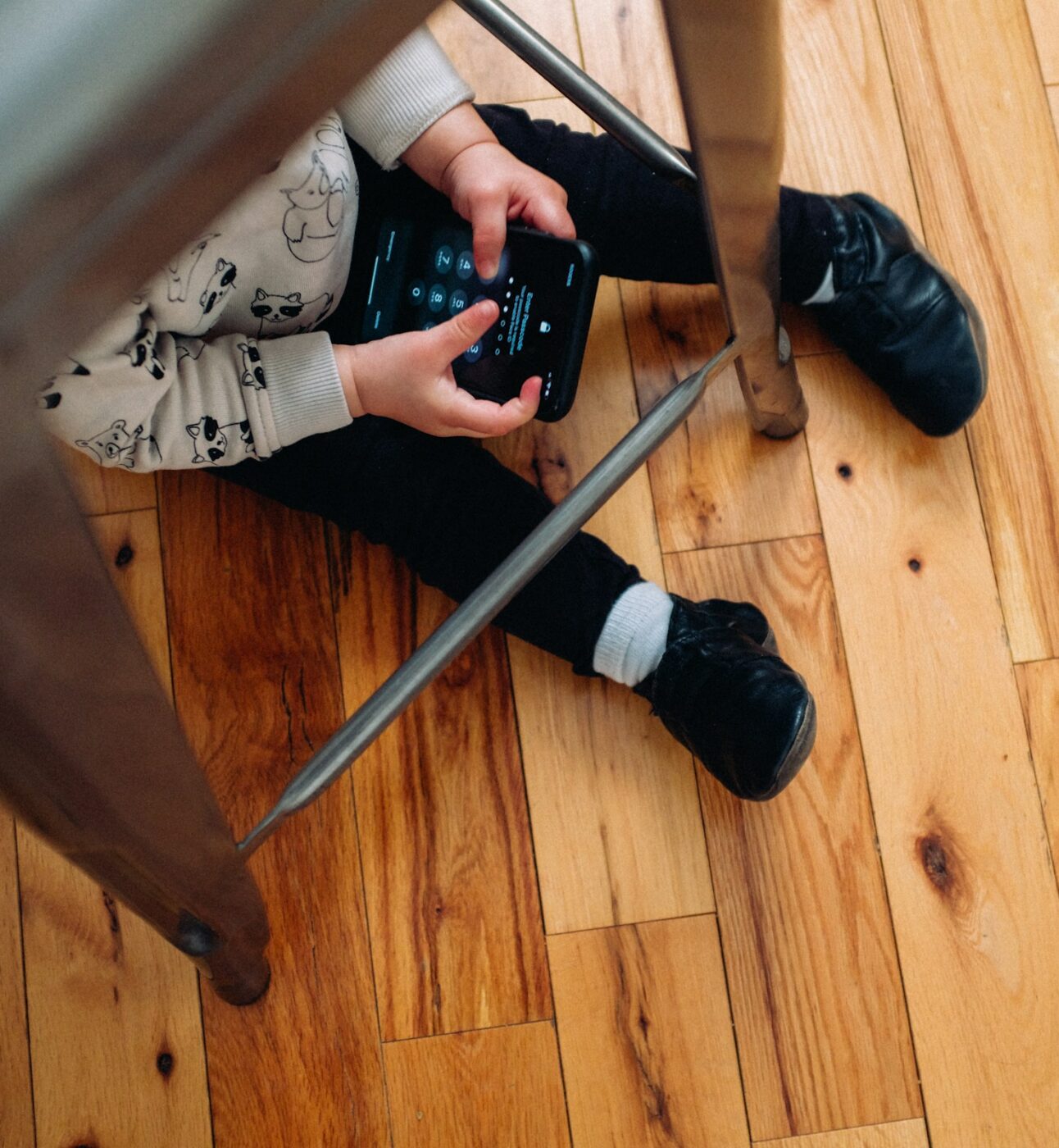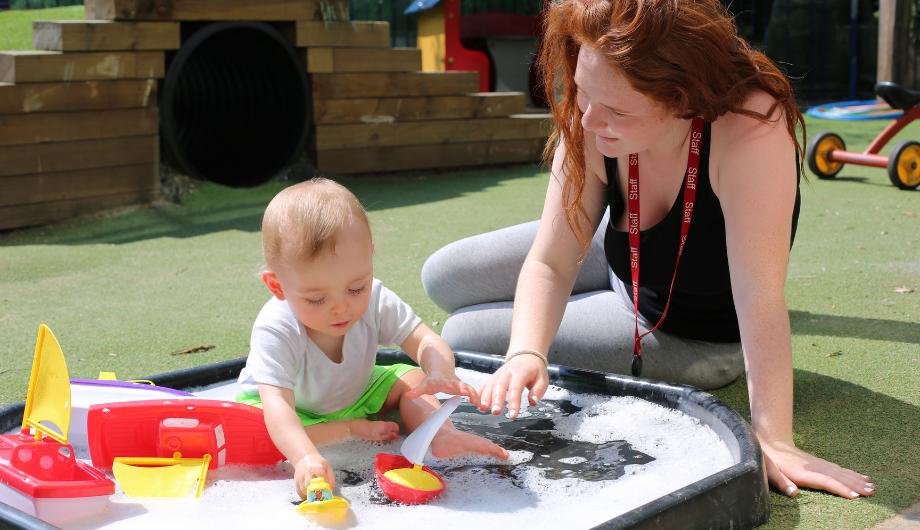
Talking Early Years: In Conversation with Prue Leith
We are all in a terrific conspiracy, we are all making money from it! Listen to Prue Leith’s take on obesity… In this podcast…
December 8th 2014
Last week I was awarded the Social Enterprise Women’s Champion Award. I was completely shocked as my nomination was as surprising as the win. The award was for my contribution to championing social enterprises as a response to social problems not just in the way I run LEYF but in supporting others too. I was very humbled to win the award. It was a very lively evening and our host Sue Perkins was hilarious. She is definitely the master of the humorous asides and a champion of social business.
The Awards are run by Social Enterprise UK which is the membership organisation for social enterprises. This year they have been pushing the Buy Social campaign which is to get social enterprises a higher profile as a means to increase business opportunities including winning public contracts.
At an event on Social Enterprise Day hosted by the Speaker of the House of Commons, John Bercow and the Speaker of the House of Lords, Baroness de Souza with Hazel Blears MP a long time champion of the social enterprise sector announced that the Houses of Parliament were now Buy Social contractors. That was good news for LEYF as we run the nursery there. At that event I met Professor Mohammed Yunus who founded Grameen Bank in Bangladesh . He is a superstar among social entrepreneurs. He recognised that if he gave small loans to women to run their own small businesses, they would create more financial sustainability in the long term for them, their families and their communities. Women when in control of their financial situation are more likely to spend more on educating their children. He is a very modest man, albeit a Nobel Prize Winner and argued that it was our duty to create a world of social entrepreneurs because that is the way we create employment and sustainability rather than just jobs which are always at risk to too many external forces.
Social entrepreneurs start from a recognition that the environment they work in is complex, fluid and fast moving. They embrace that complexity with a determination to be inclusive and compassionate. Leadbetter (1997) Pg.31
The problem with social enterprise is that it does not have one defined legal status so people are often unsure as to how to be one. Some more cynical operators describe themselves as one but are not. Many social businesses operate as mutuals, or community interest companies (CIC) or fairtrade companies. What is essential is that as a social business we trade and use our profit to sustain the business, while operating in a socially inclusive way that creates social benefit sometimes known as a triple bottom line ( social, economic and environmental benefits).
LEYF is a charitable social enterprise which means we remain a charity as a structure but operate as a business and our asset lock is the memorandum and articles of the charity. In our case that is to provide nurseries, training and employment to those who are disadvantaged and to campaign for better opportunities for poor families. Our business model translates into us running high quality nurseries with a proportion specifically targeted to poor neighbourhoods.
Our pedagogy is designed with an explicit focus on the child and a greater understanding of the impact of the home context and the community but with solid well researched teaching and learning approaches especially for the prime areas to ensure we address the fear that the constructivist method can undervalue children’s learning and competence and the content knowledge they need to develop thinking. This is our social benefit and the more we can get the business to work the more children we can support. Sadly, in a current economy of growing inequality we need to do more of this faster hence our growth ambition. In addition we create employment and train local young people through our apprenticeship programme in order to increase economic activity in the area. We then add social capital by ensuring community multi- generational activities are at the heart of what we do. Being a business means we have to be fully self-sustaining and cross subsidise our fees to support at least half of all our children. We have to do this without relying on any grants. Other businesses which are also social enterprises but operate their business model in a different way include Belu water which sells water but donates a proportion of the profits to WaterAid, or Divine Chocolate which produces the chocolate as part of a cooperative with farmers in Ghana, Fashion-Enter which runs a factory making clothes while training local apprentices to become designers and seamstresses or GLL which cross subsidises its gym fees to provide additional support to poor people locally.
There is a bigger social enterprise conversation going on in the world especially when it comes to small children. There are 200 million children in the world and 90% of those live in the developing world and as more and more people recognise the importance of childcare to give children a really good start in life and many parents want to give their children this advantage. President Obama has organised a Summit on Early Years at the White House next week. I wrote to him about the social enterprise model as one way of helping achieve his ambition to provide 6 million poor children in the US with high quality education.
The DfE has just shown an interest in social enterprise and is keen to look at social innovation. About time I say! However, it’s an important move given the benefits of high quality childcare especially for those children living in poverty. No doubt the DfE is also considering support services that add value and enrich childcare a view that spurred me on many years ago after I read Putnam and his quote
“…Child development is powerfully shaped by social capital…trust, networks and norms of reciprocity within a child’s family, school, peer groups and larger community have wide ranging effects on the child’s opportunities and choices and hence behaviour and development” Putnam (2000) pg. 296
However, it took ten years and a long history to shape LEYF as a sustainable scalable business so a word of caution to those keen to support start up social businesses. One in three small business fail and that is higher for social businesses. The challenge for the DfE will be to balance funding small businesses that can scale and grow, to encourage bigger businesses like LEYF as well as to establish a collaboration between the both. Too many poor families are failed by the current system that depends on state funding to survive but as soon as this is gone so is the service. We cannot replicate this under the guise of a social business. We must guard against a rush to throw money at those who brand themselves as social business but when you scrape beneath the surface you see a different picture and those who are keen to be social but need to do it steadily. We cannot fail those very children and families who already are being tossed onto the waves of inequality and poverty.

We are all in a terrific conspiracy, we are all making money from it! Listen to Prue Leith’s take on obesity… In this podcast…

It is Good to Talk! The signs of things going wrong in society are usually first evident in small children. The widespread dependence on Smartphones is…

Talking Early Years – In Conversation with Dr Ger Graus The power of play is recognised within the Early Years sector as essential to children’s development. Playing is…